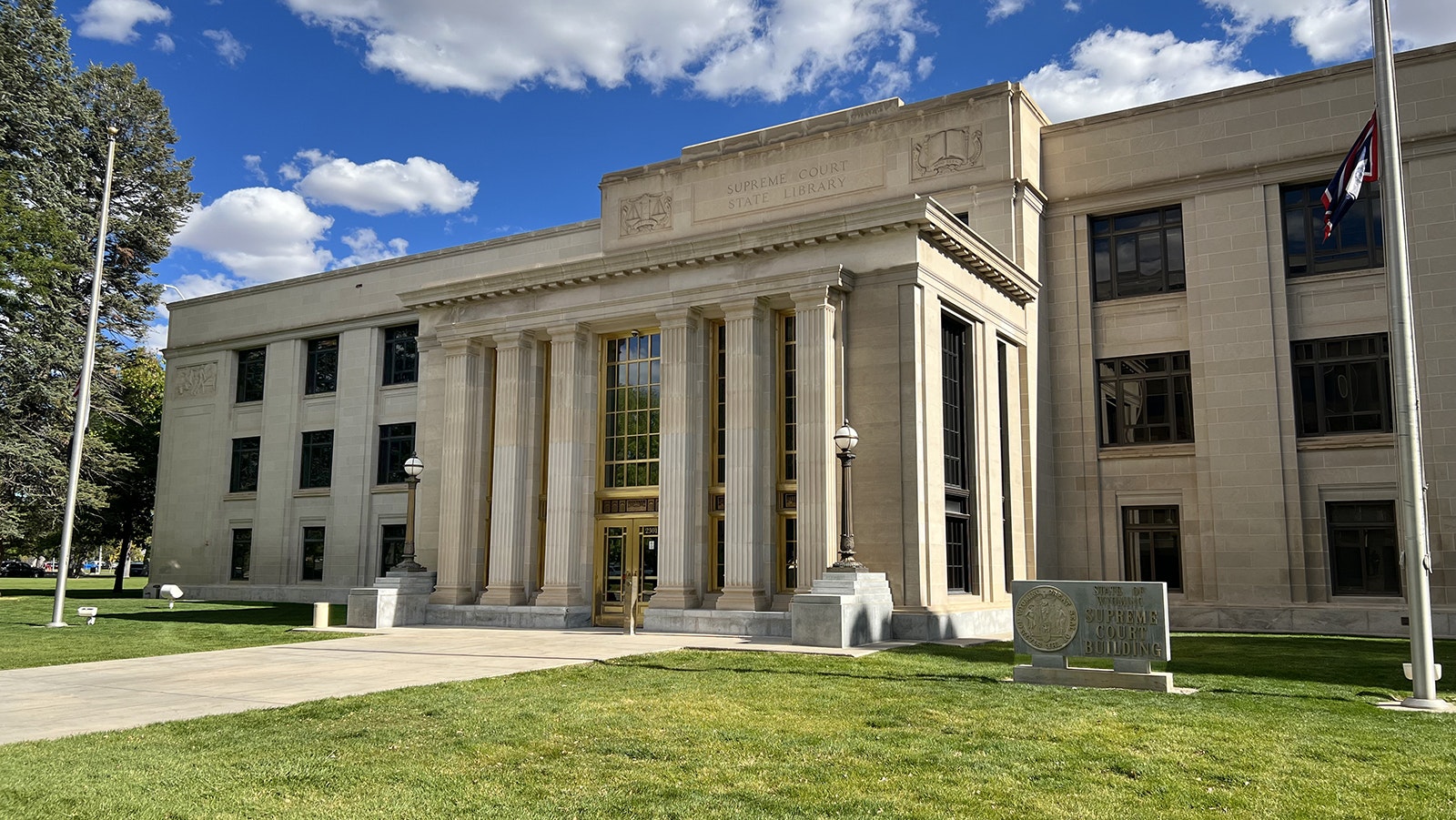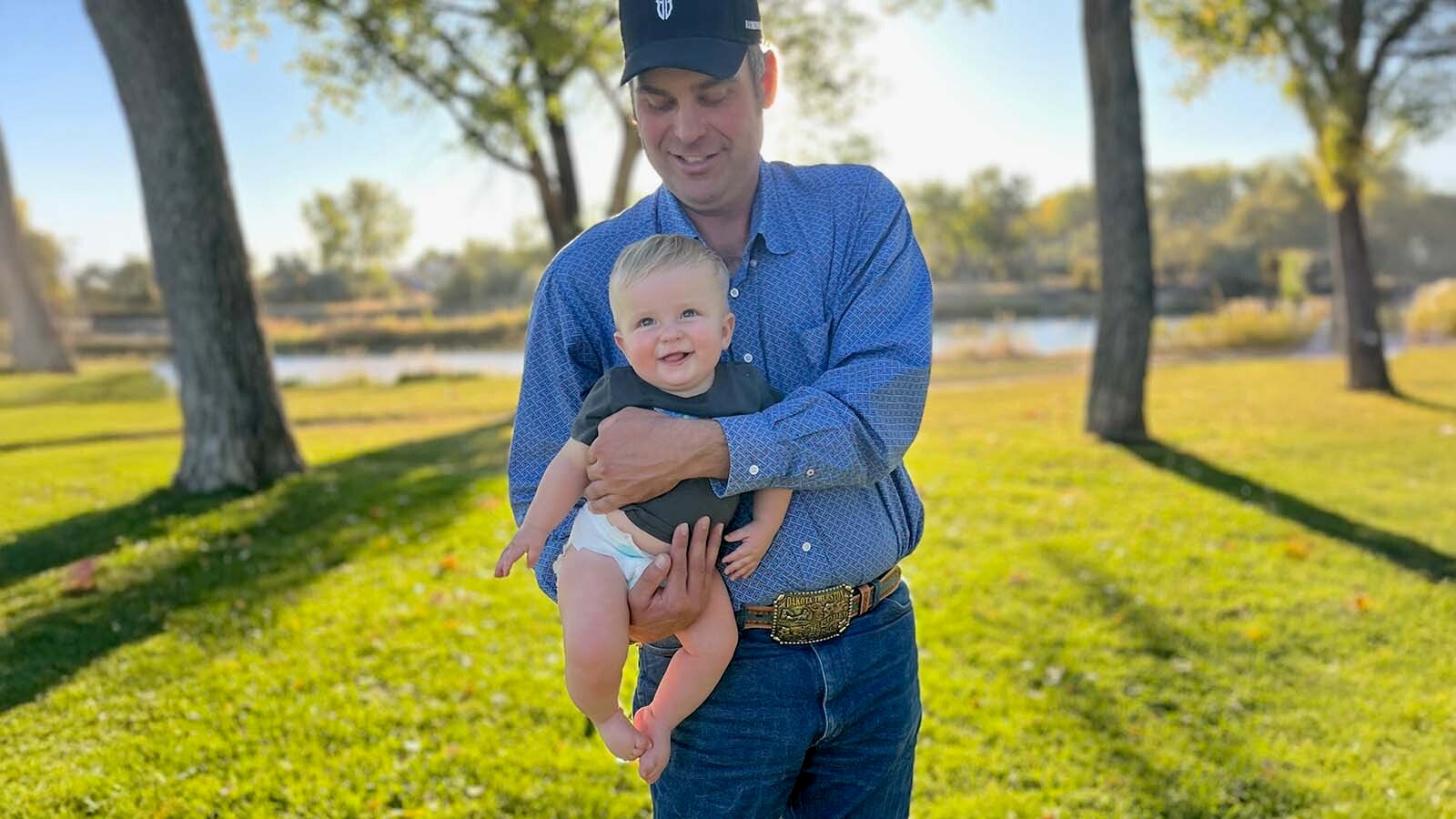Even though a Laramie judge based her decision on secondhand testimony, no one could show that she erred in letting law enforcement keep a convicted child molester’s phone after he asked to have it returned, the Wyoming Supreme Court ruled Thursday.
Russell Patrick Benedict, 45, pleaded no contest in 2018 to molesting a 16-year-old girl and was sentenced to between 18 and 20 years in prison.
Bendict’s girlfriend handed the man’s phone over to Albany County Sheriff’s investigators in 2018, but they weren’t able to search the phone because Benedict claimed to have forgotten his own passcode.
So, they kept his phone but never searched it, a Thursday order by the Wyoming Supreme Court recounts.
But in 2022, Benedict filed a petition asking for the state to release his phone to a family member.
Wyoming case law presumes that a man has a right to his own property. If the government wants to keep a convict’s property, it has to prove it has a legitimate reason for that.
In this case, the prosecutor said the state couldn’t give Benedict’s phone over because it still potentially had lewd photos of his victim on it. So, the state would be distributing child pornography (which is a felony in itself) if it gave Benedict’s phone to someone else, the prosecutor had argued.
Albany County District Court Judge Misha Westby agreed, finding that the state had proven that Benedict’s cellphone “likely contained pornographic images” of his victim. She ruled against Benedict’s request.
When Westby first made that ruling, the Wyoming Supreme Court sent the case back to her and asked her to scratch her decision, have an evidentiary hearing and then issue a decision based on the evidence presented at the hearing.
Westby did so, holding a hearing in 2023.
Hearsay
The prosecutor said the rules of evidence, which bar testimonies based on hearsay, didn’t apply to that hearing because it wouldn’t influence the judgment in Benedict’s case.
Benedict’s attorney said that assessment was correct.
Westby allowed Albany County Detective Jeffrey McKinney to give a secondhand account of what Detective William Meyer, who has since left the sheriff’s office, learned while investigating Benedict’s case. McKinney cited evidence there would be nude photos of the girl on the phone, and said investigators couldn’t factory reset it without Benedict’s passcode.
This Isn’t Outrageous Though
The Wyoming Supreme Court’s ruling says the rules of evidence do, in fact, apply to hearings like that one, which would bar hearsay testimonies like the one McKinney gave.
The high court noted that Benedict’s attorney didn’t argue against allowing hearsay, but didn’t specifically agree to it either. So the court turned to Westby’s management of the hearing to see if she made any plain errors that could have robbed Benedict of justice.
We’ll never know, because Benedict didn’t lay out an analysis of any alleged errors, the order says.
“He has instead made only a passing and conclusory argument that if this Court were to review for plain error, the violations in this case would easily qualify,” says the ruling, adding that the high court isn’t going to do that lifting for him.
Also, Westby’s conclusion that child pornography likely remains on Benedict’s cellphone didn’t come from any unreasonable maneuver.
“We cannot say it was arbitrary, capricious or beyond the bounds of reason for the district to rely on that (hearsay) testimony, introduced without objection, to conclude the State had met its burden of showing its interest in retaining Mr. Benedict’s phone,” says the ruling. “The State proved that return of the phone to Mr. Benedict would more likely than not result in … further trauma (to the victim).”
Clair McFarland can be reached at clair@cowboystatedaily.com.





